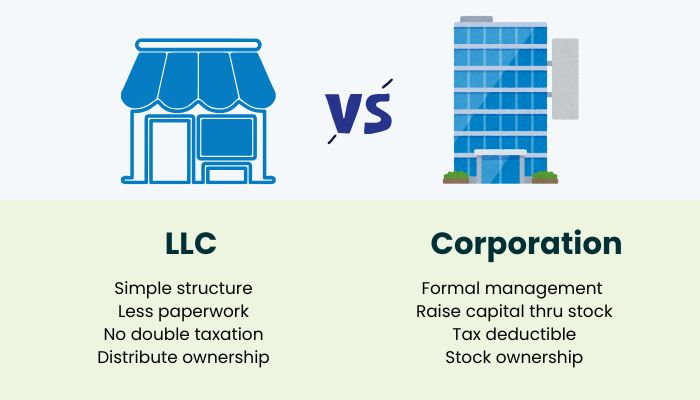


Let’s imagine you’ve set your sights on building a portfolio of businesses—maybe a small tech startup here, a neighborhood café there—using your capital, time, talent, and technology. If so, you’ll quickly bump into the question: “How should I structure my holding company?” Typically, the choice boils down to forming a Limited Liability Company (LLC) or creating a Corporation. Both can work beautifully in certain situations, but they aren’t identical under the hood. Here’s a conversational rundown to help you think it through.

One of the big draws of an LLC is its simplicity in terms of ongoing paperwork. In many states, you won’t need to hold formal meetings or maintain all the documentation a Corporation typically requires—like annual shareholder reports, board meeting minutes, and so on. For people who want to keep things uncluttered and focus more on running day-to-day operations, that’s a relief.
However, it’s not that Corporations are “bad” because of the extra formality. In fact, some entrepreneurs find the built-in structure reassuring, especially if they plan to bring on investors who expect a certain level of rigor and transparency. It can also reinforce clear decision-making processes when multiple leaders (and possibly multiple boards) are involved.
If you file an LLC, you usually have leeway to decide how you’ll be taxed—perhaps as a sole proprietorship, partnership, or even electing to be taxed like a Corporation. This flexibility can be a major plus if your holdings are varied or if you expect some layers of complexity. Just remember that “flexible” doesn’t always mean “simple.” You’ll still want a good accountant advising you.
Corporations, meanwhile, are separate legal entities. Under a standard C-Corp structure, the company itself pays taxes, and then any dividends paid to shareholders can be taxed again (often called double taxation). It’s not always a deal-breaker, though. If you plan on reinvesting profits for a while, the corporate structure might serve you well in the long run—especially if you want to attract institutional investors who are used to that model.
Bringing in investors down the road? You might find they’re more accustomed to the Corporation route, where issuing shares is straightforward and well-documented. That doesn’t mean LLCs can’t raise money—plenty of them do—but the mechanics of how membership interests are allocated or sold can be trickier to explain if someone’s used to the typical stock-ownership framework.
On the flip side, if you’re keeping your plans relatively tight-knit—like a small group of friends or colleagues pooling resources—an LLC might be more than enough. Sometimes the simpler structure makes collaboration easier when you don’t need the bells and whistles of corporate stock classes.
Ultimately, the LLC vs. Corporation call hinges on your goals. If you crave flexibility and fewer ongoing formalities, an LLC can be your best friend. If you’re eyeing substantial external funding or an eventual IPO, a Corporation may fit more neatly into that roadmap. There’s no universal right or wrong—just what feels right for you and the type of empire you’re building.
Of course, none of this is official legal or financial advice. Chat with a lawyer and a tax pro who understand your unique plans before you commit. They’ll help you navigate the specifics of your situation, so you go in with eyes wide open. And once you have the right structure in place, you’ll be better positioned to pour your capital, time, and talent into those ventures that can turn a simple vision into a thriving series of businesses under one holding-company banner. Good luck!
